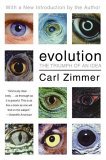One of the worst canards that the creationists like to throw at Darwin is that his theory led directly to the 20th centuries atrocities of Stalin, Hitler and the holocaust. The most egregious and blatant example of this was in Ben Stein's propaganda piece last year. I wonder what these people will have to say to this new perspective on what motivated Darwin to develop his theory of evolution and search for a common ancestor for all human beings, and other species:
"It makes one's blood boil," said Charles Darwin.
Not much outraged the gentle recluse, but the horrors of slavery could cost him a night's sleep.
He was thinking of the whipped house boy and the thumbscrews used by old ladies in South America, atrocities he had witnessed on the Beagle voyage.
The screams stayed with him for life, but how much did they influence his life's work?
Today you can still read of Darwin's "eureka" moment when he saw the Galapagos finches.
Alas, his conversion to evolution wasn't so simple, but it was much more interesting. It didn't occur in the Galapagos, but probably on his arrival home.
And new evidence suggests that Darwin's unique approach to evolution - relating all races and species by "common descent" - could have been fostered by his anti-slavery beliefs.
[via BBC NEWS | Darwin's twin track: 'Evolution and emancipation']
Darwin wrote with considerable feeling about his experiences among the natives of South America, as in this passage from "The Voyage of the Beagle:
"On the 19th of August we finally left the shores of Brazil. I thank God, I shall never again visit a slave-country. To this day, if I hear a distant scream, it recalls with painful vividness my feelings, when passing a house near Pernambuco, I heard the most pitiable moans, and could not but suspect that some poor slave was being tortured, yet knew that I was as powerless as a child even to remonstrate. I suspected that these moans were from a tortured slave, for I was told that this was the case in another instance. Near Rio de Janeiro I lived opposite to an old lady, who kept screws to crush the fingers of her female slaves. I have stayed in a house where a young household mulatto, daily and hourly, was reviled, beaten, and persecuted enough to break the spirit of the lowest animal. I have seen a little boy, six or seven years old, struck thrice with a horse-whip..."
As the BBC article, and the new book, traces some of the less well-known aspects of his life-story, it is worth remembering that Darwin had another, less luminary mentor: a freed slave who taught him taxidermy and likely planted the seeds of longing for the lush tropical forests of distant South America five years before he got the famous invitation to join the Beagle's voyage. During February-April 1826 young Charles spent a significant interlude with:
John Edmonstone, a freed black slave from Guyana, South America, taught Darwin taxidermy. The two of them often sat together for conversation, and John would fill Darwin's head with vivid pictures of the tropical rain forests of South America. These pleasant conversations with John may have later inspired Darwin to dream about exploring the tropics. In any event, the taxidermy skills Darwin learned from him were indispensable during his voyage aboard H.M.S. Beagle in 1831.
Another remarkable chapter from the life of a remarkable man, who was way ahead of his times. Another reason to celebrate the man... but I'm not holding my breath for the creationists to stop vilifying him, much less join the celebration.














